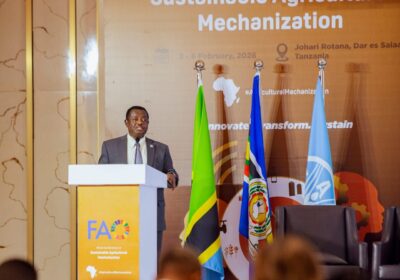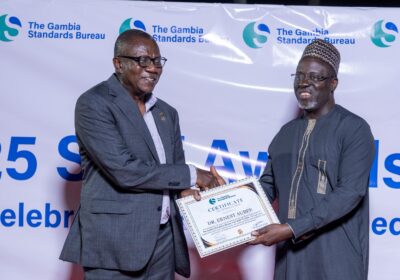Nigeria Urges Ethiopia on Prisoner Exchange Deal, Demands Justice for Detained Citizens By Raymond Enoch
The Federal Government of Nigeria has called on the Federal Democratic Republic of Ethiopia to expedite action on the long-pending Memorandum of Understanding (MoU) for the Exchange of Sentenced Persons, amid mounting concerns over the treatment of Nigerian nationals detained in Ethiopia.
During a meeting at Tafawa Balewa House, Abuja, Minister of State for Foreign Affairs, Ambassador Bianca Odumegwu-Ojukwu, delivered Nigeria’s strong position to the Ethiopian Ambassador to Nigeria, Legesse Geremew Haile. She expressed deep concern over what she described as repeated delays in finalizing the MoU, despite prior assurances from Ethiopian authorities.
Ambassador Odumegwu-Ojukwu voiced the Federal Government’s displeasure over cases of harassment and embarrassment suffered by Nigerian citizens, including holders of official and diplomatic passports, while transiting through Addis Ababa. She recalled that Nigeria had fully incorporated Ethiopia’s observations into the draft MoU, and questioned the prolonged delay in its signing since their last diplomatic engagement on March 6, 2025.
Of particular concern, the Minister revealed, is the deteriorating welfare of Nigerian inmates in Ethiopian prisons—many of whom allegedly lack access to medical care. She cited the recent death of a Nigerian prisoner as a devastating outcome of such neglect. “Our people don’t want to hear that another Nigerian inmate died in Ethiopian prison,” she said, underscoring Nigeria’s commitment to citizen diplomacy.
Odumegwu-Ojukwu also called for urgent action regarding funds seized from Nigerian travelers in Ethiopia, noting that despite a 2022 amnesty announced by Ethiopian Prime Minister Abiy Ahmed, refunds have been slow and inadequate. Out of 25 Nigerians affected, only two have received their money back—despite 15 approvals.
She drew attention to the heart-wrenching case of Mr. Francis Chukwuma Uzoh, who has remained destitute since the seizure of his $70,000, despite fulfilling all refund requirements. “He has become desolate, homeless, and a shadow of his former self,” she lamented. “The Ethiopian Government must refund Mr. Francis his money while he is still alive, not wait to use it to bury him.”
The Minister further criticized Ethiopia’s handling of the visa waiver agreement, tied to the Bilateral Air Services Agreement (BASA), accusing Addis Ababa of unilaterally suspending the deal without notifying Nigeria. She stressed that many Nigerians rely on Ethiopian Airlines for international travel, given Addis Ababa’s status as a key transit hub.
In response, Ambassador Haile clarified that the visa waiver agreement still exists, pending ratification by Ethiopia’s House of Representatives. He noted that visas have continu ed to be issued to Nigerian officials and diplomats, and assured that visa-on-arrival arrangements remain intact for regular travelers.
ed to be issued to Nigerian officials and diplomats, and assured that visa-on-arrival arrangements remain intact for regular travelers.
Despite the tensions, both parties affirmed their commitment to maintaining strong bilateral ties. The Minister confirmed that preparations were underway for the 4th Session of the Nigeria-Ethiopia Joint Commission, slated to hold soon in Abuja.










